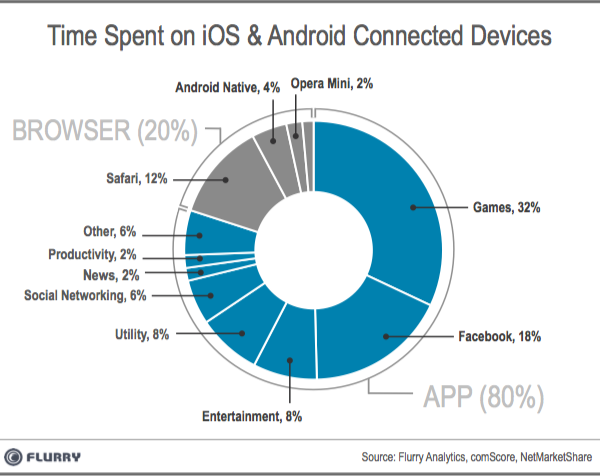 Earlier this year, Emily discussed the Benefits of Choosing a Mobile Website over an App. To recap, a mobile website is viewed in a browser, requires an internet connection, and has been optimized for handheld devices and tablets. An application, on the other hand, is downloaded to the device and may work offline depending on functionality. There are advantages and disadvantages to both and depending on your audience and needs, you may only need a mobile website.
Earlier this year, Emily discussed the Benefits of Choosing a Mobile Website over an App. To recap, a mobile website is viewed in a browser, requires an internet connection, and has been optimized for handheld devices and tablets. An application, on the other hand, is downloaded to the device and may work offline depending on functionality. There are advantages and disadvantages to both and depending on your audience and needs, you may only need a mobile website.
It wasn’t all that long ago that website browsing was limited to desktop and laptop devices, but the release of the smartphone changed all that. Now, handhelds and tablets are becoming the dominant way to surf the web, socialize, and shop. In fact, depending on what country you live in, handheld devices and tablets outnumber desktop usage.
Mobile Website
In my opinion as a web developer and consumer, having a mobile website is a must for any small business. The stats continue to trend in favor of handheld and tablet devices over desktop. If you need more convincing, read Christopher’s article on why small businesses should worry about mobile. Or just take a look at your own mobile habits. When do you use your phone, tablet, and desktop computer? Why do you use each device, and what purpose does it serve? While at home, my phone and tablet are used more than my laptop. Purchasing items, reading articles, surfing the web are all done on my phone. I’ll use my tablet to view a website that isn’t optimized for handheld devices. Oh, and to watch science fiction movies. Because, you know… they’re awesome! While I’m out and about, my phone still dominates. It’s used for finding my way around town (GPS maps), and getting business information (phone number, hours of operation, address).
So a mobile website is necessary, but what about having a mobile application?
Mobile Apps
Flurry Analytics gathered data about the amount of time U.S. consumers spend between mobile browsers and mobile apps by category.

In the United States, consumers spend an average of 2 hours and 38 minutes a day on handheld devices and tablets. 80% of this time is spent engaged in an application, leaving 20% for using the browser. Games at 32%, and socializing at 18% take up most of a consumer’s time. It’s important to note that social apps like Facebook and Twitter show content from article links within the mobile view, which means the browser is never launched. The conclusion is that handheld devices and tablets are overtaking desktop usage and applications dominate a consumer’s time.
Does this mean building an application is worth the time and money for your small business? Based on the usage and time spent in each category, an application may not be worth the investment. While the data is overwhelmingly in favor of apps over browsers, it may not help increase lead conversions for your small business. In order to answer this question, further investigation is required. Questions need to be answered, such as:
- What are your consumers looking for or trying to accomplish in regards to your business?
- What purpose would creating an app serve?
- What is the functionality of the app?
- Would it satisfy a need that your consumers have?
Once you’ve answered these questions, you can decide what’s best for your small business based on the data you collect.




